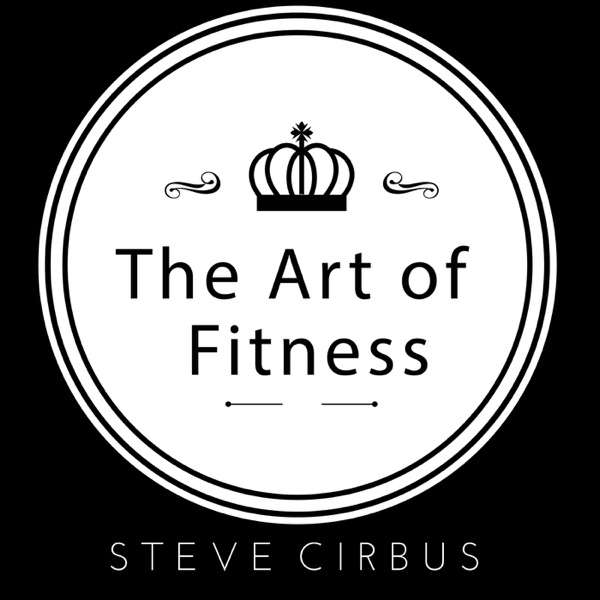The post 017: Isa Herrera on Pelvic Health and Why It Matters Even If You Have a Healthy Diet appeared first on Keto Summit.
Isa Herrera, MSPT, CSCS is a licensed physical therapist, speaker, author of five books, as well as an expert in integrative pelvic floor therapies in the field of women’s health. She has used her years of expertise in diagnosing and treating pelvic pain to help over ten thousand women at her NYC-based healing center Renew Physical Therapy. Join her free live masterclass “5 Steps To Happier Lady Parts”, How to Say Goodbye to Leaking, Pressure, and Pain without Setting Foot In A Doctor’s Office. Download for free, “The Perfect Kegel Checklist“, the only proven 4-step program guaranteed to supercharge your kegels.
In this episode, Isa talks about:
- Define pelvic floor health
- Who does pelvic floor issues affect
- Exercises to reduce pelvic pain
- Diet and pelvic health
- Yoga and pelvic floor strengthening
- Pelvic Floor Dysfunction and sex
- Where to get help
Featured Guest
Isa Herrera
Links
Isa’s Website
The Perfect Kegel Checklist
Facebook
Twitter
Youtube
Instagram
And in case you don’t love listening to a podcast, here’s Isa explaining the issues in a blog post format as well…
If You Are Suffering From Leaking, Painful Intimacy and Pelvic Discomfort, Then Here’s What You Need to Know
First off, you are not alone!
30 million women in the United States are suffering from pelvic floor disorders.
Which means that 30 million women are suffering from debilitating and embarrassing symptoms such as urine leaking, painful sex, weak or non-existent orgasms and pelvic organ prolapse. (1-3)
Unfortunately, this condition is often misdiagnosed and/or mistreated leading to shame, prolonged suffering, and worsening symptoms. (2, 3)
And it’s not your doctor’s fault – they’re often not taught about this in medical school even!
What Are Pelvic Floor Conditions?
Female pelvic floor conditions are physical conditions.
They are not emotional, psychological or sexual disorders.
And many female pelvic floor conditions can be healed with noninvasive natural, holistic therapies and medications are rarely needed. (4,5) I know this from personal experience…
After the birth of my child I suffered from what I call the new “mom trifecta”: pain with sex, urine leaking and pelvic organ prolapse (when your organs are not held in place by your pelvic floor muscles) .
The nurses and doctors all told me what I was experiencing was normal. The pain with sex “normal”. The urine leaking when I carried my baby “normal”. The ache and pressure in my pelvis “normal”.
Being a licensed physical therapist and trusting my female intuition, I decided to go on a quest to heal myself.
What I Discovered After Performing 14,704 Pelvic Healings..
Not only was I able to heal myself, but I also started a clinic helping other people in NYC (Renew Physical Therapy).
And the cause of most pelvic pain, bladder issues, leaking, prolapse and abdominal pain turns out to be “the pelvic floor muscles.”
Instead of doing experimental drugs, injections, and surgeries, you can actually fix these problems naturally and with better chance of success.
What’s the secret, you ask?
Your Pelvic Floor Muscles Are KEY!
Our pelvic floor muscles AKA vaginal muscles are highly innervated, vascularized, and complex, and are susceptible to injuries.
The pelvic floor muscles are involved in what I call the 5 functions of life. They support our organs, close off our urinary sphincters, enhance sexual function, stabilize our hips and spine and act as a sump pump for the pelvis.
The pelvic floor muscles are also the deep connectors to the upper and lower extremities and when there’s an issue with them, such as scarring from births, episiotomies, spasms, trigger points or they are too weak or too tight, they can contribute to symptoms such as urinary and fecal incontinence, pain with sex, pelvic discomfort and low to non-existent orgasms.(10)
Research has shown that very few doctors, during routine gynecological exams, perform a digital exam of the pelvic floor muscles, the area where the women are experiencing most of their pain and symptoms. (11) Heck I’ve never had a doctor examine my pelvic floor or even speak to me about it. Have you?
But don’t despair…
Let Me Tell You About A Natural Way To Heal Your Pelvic Dysfunction
What you probably don’t realize is that you can heal yourself through integrative and holistic practices that include massages, exercises, yoga, and meditation and mindfulness training all which can be incorporated into a self care program. (12,13)
As a matter of fact, The Center For Disease Control and National Institutes of Health have recommend natural therapies such as pelvic floor muscle training as the first line of defense in resolving symptoms related to leaking, pelvic organ prolapse and pelvic pain.(14,15)
Want To Learn More?
I discussed some of the treatments including some of my favorite yoga routines as well as Kegel exercises in my podcast interview with Louise. And you’ll find a link to download The Perfect Kegel Checklist.
But I’d also like to invite you to join me for a FREE comprehensive master class where I teach my best tips, massages and exercises that will put you back in the driver’s seat of your pelvic, sexual and bladder health.
Click here to sign up for the FREE Master Class. It starts on Feb 6th, so click here to reserve your spot.
References
1. Harlow BL, Kunitz CG, Nguyen RHN, et al. Prevalence of symptoms consistent with a diagnosis of vulvodynia: population-based estimates from 2 geographic regions. Am J Obstet Gynecol. 2014;210:40.
2. Mathias SD1, Kuppermann M, Liberman RF, et al. Chronic pelvic pain: prevalence, health-related quality of life, and economic correlates. Obstet Gynecol. 1996;87(3):321–327.
3. Reed BD, Harlow SD, Sen A, et al. Prevalence and demographic characteristics of vulvodynia in a population-based sample. Am J Obstet Gynecol. 2012;206:170.1–9.
4. Arnold LD, Bachmann GA, Rosen R, et al. Vulvodynia: characteristics and associations with comorbidities and quality of life. Obstet Gynecol. 2006;107:617–624.
5. Nickel JC, Tripp D, Teal V, et al. Sexual function is a determinant of poor quality of life for women with treatment refractory interstitial cystitis. J Urol. 2007;177(5):1832–1836.
6. Paulozzi LJ, Mack KA, Hockenberry JM. Vital signs: variation among states in prescribing of opioid pain relievers and benzodiazepines—United States, 2012. MMWR Morb Mortal Wkly Rep 2014;63:563–8. PubMed
7. Paulson JD, Delgado M. Chronic pelvic pain: The occurrence of interstitial cystitis in a gynecological population. Journal of the Society of Laparoendoscopic Surgeons. 2005;9(4):426–430.Retrieved from
http://www.ncbi.nlm.nih.gov/pmc/articles/PMC3015651/?tool=pubmed.
8. Gerrits MM, van Oppen P, van Marijk HW,et al. Pain and the onset of depressive and anxiety disorders. Pain. 2014;155:53–59
9. Pacik PT, Understanding and Treating Vaginismus: A Multiimodal Approach. Int Urogynecol J. 2014 Dec;25(12):1613-20. doi: 10.1007/s00192-014-2421-y. Epub 2014 Jun 4.
10. Gray’s Anatomy: The Anatomical Basis of Clinical Practice, 41e by Susan Standring PhD
11. Kavvadias T, Baessler K, Schuessler B. Pelvic pain in urogynaecology. Part I: evaluation, definitions and diagnoses. International Urogynecology Journal. 2011;22(4):385–393. doi: 10.1007/s00192-010-1218-x. [PubMed]
12. Crisp CD, Hastings-Tolsma M, Jonscher KR. Mindfulness-based stress reduction for military women with chronic pelvic pain: a feasibility study. Mil Med. 2016;181(9):982-989. doi:10.7205/MILMED-D-15-00354
13. van der Kolk BA, Stone L, West J, et al. Yoga as an adjunctive treatment for posttraumatic stress disorder: a randomized controlled trial. J Clin Psychiatry. 2014; 75(6):e559-65. doi:10.4088/JCP.13m08561
14. CDC Guideline for Prescribing Opioids for Chronic Pain — United States, 2016 Recommendations and Reports / March 18, 2016 / 65(1);1–49
15. NIH State-of-the-Science Conference: Prevention of Fecal and Urinary
Incontinence in Adults December 10-12, 2007 Bethesda, Maryland
16. Goldfinger C, Pukall CF, Thibault-Gagnon S, et al. Effectiveness of cognitive-behavioral therapy and physical therapy for provoked vestibulodynia: a randomized pilot study. J Sex Med. 2016; 13(1):88-94. doi:10.1016/j.jsxm.2015.12.003
The post 017: Isa Herrera on Pelvic Health and Why It Matters Even If You Have a Healthy Diet appeared first on Keto Summit.

 Our TOPPODCAST Picks
Our TOPPODCAST Picks  Stay Connected
Stay Connected


 ), Restorative Wellness Practitioner and Certified Personal Trainer from Colorado. After being told by her doctors that she would need to be on medication the rest of her life, she decided to prove them wrong and set out to heal herself.
), Restorative Wellness Practitioner and Certified Personal Trainer from Colorado. After being told by her doctors that she would need to be on medication the rest of her life, she decided to prove them wrong and set out to heal herself. 




